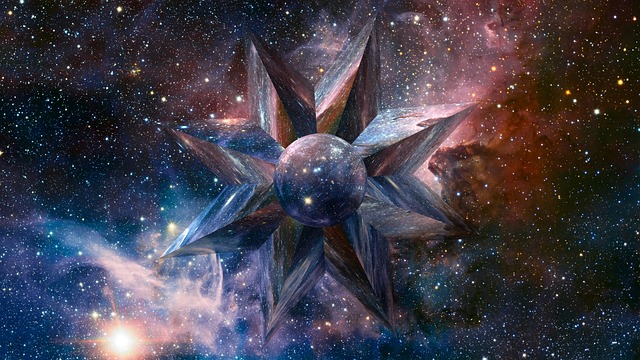February 24, 2018
Neo-Hegelianism and F.H. Bradley’s Absolute
Note: the following article on Neo-Hegelianism and F.H. Bradley’s Absolute is a modified excerpt (pp. 53-56) from my doctoral dissertation, “Time is Everything with Him”: The Concept of the Eternal Now in Nineteenth-Century Gothic, which can be downloaded (for free) from the repository of the Tampere University Press. For a list of my other academic publications, see the list on the main website.
Introduction
Neo-Hegelianism is the branch of idealism that is historically most pertinent to the Victorian era. As the name implies, this school of thought draws from the works of the German philosopher Georg Wilhelm Friedrich Hegel.
Typical representatives of British Neo-Hegelianism were Hutcheson Stirling, in his The Secret of Hegel (1865), the brothers Edward and John Caird, in several works in the late Victorian era – such as An Introduction to the Philosophy of Religion (1880) – and also F. H. Bradley, in works such as Appearance and Reality (1893) and Essays on Truth and Reality (1914).

F.H. Bradley’s Absolute: “No Truth which Is entirely True”
F.H. Bradley argues that “[t]here will be no truth which is entirely true, just as there will be no error which is totally false” (1893, 362). For him, the emphasis is placed on universal unity and in the inability to separate one thing from its relationally interconnected others, or, in Hegelian terminology, a thesis from its antithesis. As he argues, “[t]o find qualities without relations is surely impossible” (Bradley F.H. 1893, 26).
This universal unity is directly connected with perception and human consciousness. Bradley argues that “the Absolute is one system, and that its contents are nothing but sentient experience” (1893, 146–147), adding that in order for the Absolute to be “theoretically harmonious”, it must contain no more opposition and struggle, no more theses and antitheses (1893, 155). It is important to emphasize the sublime qualities of this Bradleyan Absolute, a fact F.H. Bradley himself indirectly implies:
Fully to realize the existence of the Absolute is for finite beings impossible. In order thus to know we should have to be, and then we should not exist. This result is certain, and all attempts to avoid it are illusory … But to gain an idea of its main features – an idea true so far as it goes, though abstract and incomplete – is a different endeavour. And it is a task, so far as I see, in which we may succeed. (1893, 159; emphasis in the original)
F.H. Bradley’s approach to the Absolute is in full accord with Philip Shaw’s description of the sublime as something that “marks the limits of reason and expression together with a sense of what might lie beyond these limits” (2006, 2). (For more on Shaw’s description of the sublime, see my article on the Eternal Now).
Change and F.H. Bradley’s Absolute
F.H. Bradley argued that “[t]here is of course progress in the world, and there is also retrogression, but we cannot think that the Whole either moves on or backwards. The Absolute has no history of its own, though it contains histories without number” (1893, 499). In this, it is important to consider the aspect of temporality:
What perhaps most clearly distinguishes Bradley from Green or Caird, in [F.H. Bradley’s Ethical Studies, 1876] as later, is his doubts about … and his final rejection of … linear or teleological accounts of historical process. In common with his literary contemporaries, Bradley does not see time as functioning in any resolutive fashion. Temporal experience is no longer that positive movement of progressive discovery and achievement … [It] is now a matter of frustration, deflection and reversal. (Bradley J. 1996, 61–62)
Bradley’s Absolute cannot be accommodated within the framework of a time that is linear and measurable, bound inescapably to cause-and-effect patterns. As F.H. Bradley fully admits, “[i]f time is not unreal, I admit that our Absolute is a delusion” (1893, 206).
He goes on to argue, however, that time is in fact unreal, as the relation between past, present, and future indicates. In his view, anything that is not present cannot be treated as real, and therefore if time and its flow are to be assigned any meaning at all, it must be treated as unreal.
His question “how, if we seriously mean to take time as real, can the past be reality?” (1893, 208), indicates the predicament posited by the indefinability – indeed the sublime nature – of the eternal now. Yet in a fittingly ambiguous and contradictory manner, it is through the eternal now that a solution for such dilemmas is attempted, through the process of synthesis.
Works Cited
Bradley, Francis Herbert. Appearance and Reality. Archive.org. 1893. Web. Accessed on 29 May 2015. <https://archive.org/details/appearanceandrea00braduoft >.
Bradley, James. “Process and Historical Crisis in F.H. Bradley’s Ethics of Feeling”. Ethics, Metaphysics and Religion in the Thought of F.H. Bradley. Ed. Philip MacEwen. New York: The Edwin Mellen Press, 1996.
Shaw, Philip. The Sublime. Oxon: Routledge, 2006.
Read more: Angelis, Christos. “Time is Everything with Him”: The Concept of the Eternal Now in Nineteenth-Century Gothic. Doctoral Dissertation. Tampere, Finland: Tampere University Press, 2017. Available from the repository of the Tampere University Press.
I don't show you ads, newsletter pop-ups, or buttons for disgusting social media; everything is offered for free. Wanna help support a human internet?
(If you'd like to see what exactly you're supporting, read my creative manifesto).
